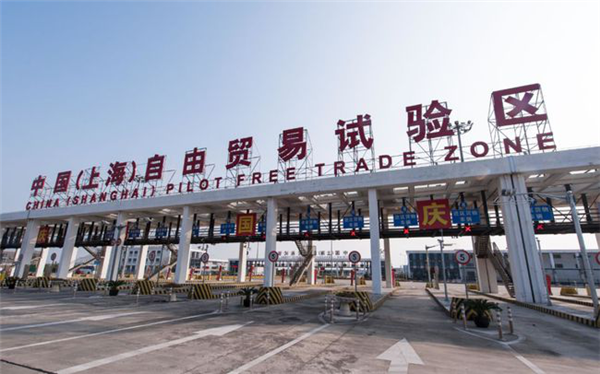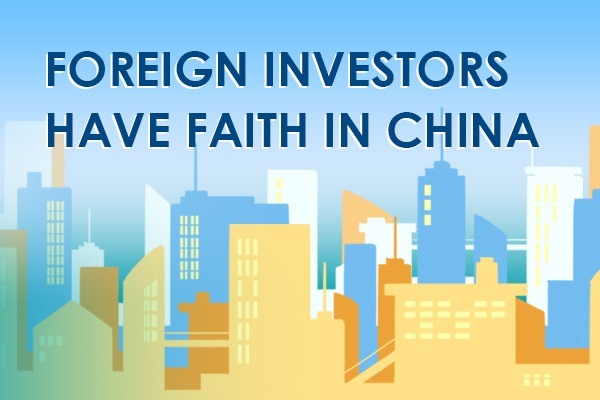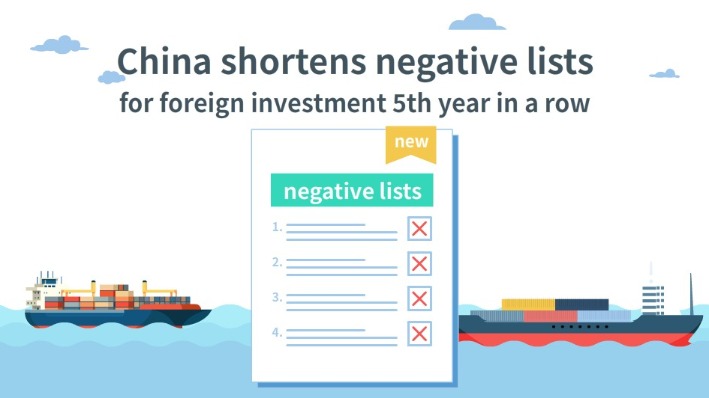Bonded areas in Shanghai FTZ witness sharp growth last year

Bonded areas in the China (Shanghai) Pilot Free Trade Zone (FTZ) continue to advance reform and opening up. [Photo provided to chinadaily.com.cn]
Bonded areas in the China (Shanghai) Pilot Free Trade Zone (FTZ) continued to advance reform and opening up and promote economic development last year, with the economy remaining stable overall, local news reported on March 19.
Official data show that the total operating income of bonded areas in the Shanghai FTZ reached 2.32 trillion yuan ($353.21 billion) in 2020, increasing by 3.5 percent, while foreign trade was valued at 1.11 trillion yuan, up 4.2 percent.
Amid the coronavirus epidemic and a deep global economic recession, bonded areas in the zone rolled out a series of innovative measures to help their economy recover from COVID-19 shocks, including launching the Global Operation Program (GOP), introducing many leading industrial companies, and fostering new business forms and models.
The headquarters economy has become a strong engine for the high-quality development of bonded areas, and statistics show that a total of 12 new regional headquarters of multinational companies have opened in the areas, bringing the total number of such companies to 118.
Last year, the Shanghai FTZ launched the GOP to boost international trade. The GOP is a high-level corporate headquarters that operates on at least two continents and is engaged in trade, investment, allocation, and research and development. The GOP implemented by the Shanghai FTZ will offer strong support for the zone's bonded areas and strengthen their ability to mobilize global resources.
Modern services and strategic emerging industries have been a driving force for the areas' development. Cross-border e-commerce orders exceeded 12.7 million in 2020, accounting for 45.15 percent of Shanghai's total, while the transaction value of the cross-border e-commerce sector reached 3.8 billion yuan, accounting for 53.21 percent of Shanghai's total.
Additionally, bonded areas in the Shanghai FTZ continued to expand reform and opening-up last year, with 690 foreign enterprises increasing investment, including Saudi Arabian chemicals giant SABIC, and Shell, a leading international oil retailer.
Official data show that the areas attracted $5.46 billion in total contractual foreign capital, a year-on-year increase of 13.7 percent, while paid-in foreign capital grew by 14 percent year-on-year to $2.61 billion in 2020.
Serving as special customs regulation zones, bonded areas in the Shanghai FTZ have a unique appeal to global investors. This year, they will launch more innovative measures to expand opening up and foster new areas of growth to achieve high-quality development.


 Foreign investors have faith in China
Foreign investors have faith in China  The RCEP era begins
The RCEP era begins  Yangtze River Delta integration: 3 years on
Yangtze River Delta integration: 3 years on  play
play 